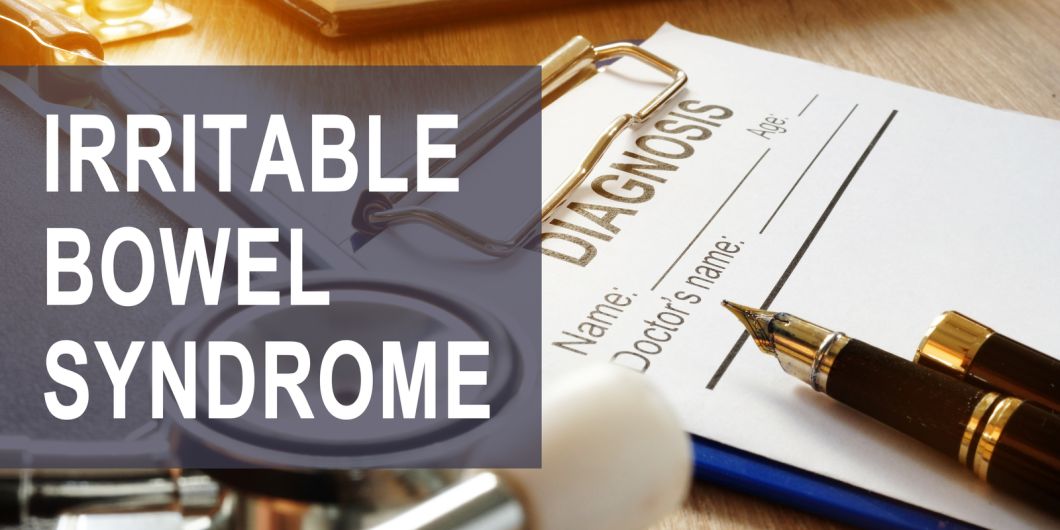Understanding Irritable Bowel Syndrome: Causes, Symptoms, and Management

Irritable Bowel Syndrome (IBS) is a common gastrointestinal disorder affecting millions worldwide. Its diverse symptoms, including abdominal pain, diarrhoea, and constipation, can significantly impact an individual’s quality of life. In this article, we will delve into the intricacies of IBS by exploring its causes, symptoms, potential triggers, and management strategies.
More...
Whether you have recently been diagnosed with irritable bowel syndrome (IBS) or suspect that you may be experiencing its symptoms, this article will provide you with valuable insights and practical tips to help you navigate living with irritable bowel syndrome.
By understanding this disorder more deeply, individuals can pave their path towards effective self-care and seek appropriate medical intervention to alleviate its debilitating effects.
Common Causes of Irritable Bowel Syndrome
While the exact cause of irritable bowel syndrome (IBS) remains unclear, the onset of symptoms typically occurs after age 50
several potential factors may contribute to its development. These include:
- Abnormal gut muscle contractions: People with IBS often experience abnormal movements in their intestines, leading to bouts of diarrhoea or constipation.
- Nervous system abnormalities: The nerves in the digestive system of individuals with IBS can be more sensitive than usual, causing increased pain perception and discomfort.
- Inflammation and immune system response: An overactive immune response or chronic inflammation in the gut may trigger symptoms such as abdominal pain and bloating.
It’s important to note that these factors can vary from person to person, and a combination of them may be present in individuals with irritable bowel syndrome. Further research is needed to fully understand the causes behind this condition for better management strategies.
Recognising Symptoms of Irritable Bowel Syndrome
Irritable bowel syndrome (IBS) can present in a range of symptoms, but there are several key signs to watch out for. These include abdominal pain or discomfort, often relieved by passing gas or having a bowel movement. Another common symptom is changes in bowel habits, such as diarrhoea, constipation, or both. In addition, individuals with IBS may experience bloating and excessive gas.
Other potential symptoms of irritable bowel syndrome include mucus in the stool and a feeling that the bowels have not fully emptied after using the restroom. Some people with this condition also report experiencing urgency when having a bowel movement or feeling like they need to go more frequently than usual.
It’s important to note that everyone with irritable bowel syndrome may experience different combinations of these symptoms, and their severity can vary significantly from person to person. If you suspect you may have IBS based on these symptoms, it’s best to consult a healthcare professional for an accurate diagnosis and appropriate management plan.
Diagnosing Irritable Bowel Syndrome

- Symptoms observation: Doctors diagnose IBS by evaluating the patient’s symptoms. This involves looking for recurrent abdominal pain or discomfort that has been present at least three days a month for the past three months, along with two of the following: improvement in pain after a bowel movement, change in stool consistency or frequency, and association with changes in bowel movements.
- Taking medical history: A detailed medical history helps doctors rule out other possible causes of symptoms, such as inflammatory bowel or celiac disease. They may ask about family history, specific foods that trigger symptoms, and recent stressful events.
- Physical examination: During a physical exam, doctors check for signs like bloating, tenderness over the abdomen, and abnormal sounds from the intestines.
Additional Tests
In some cases, if an initial treatment for IBS doesn’t work, additional tests may be done to confirm an IBS diagnosis:
Stool tests:
- These are performed to rule out infections or conditions like lactose intolerance. Your stool might also be examined for bacteria, parasites or bile acid.
Blood tests:
- Blood samples help check for indicators of underlying health issues like celiac disease.
Colonoscopy:
- A colonoscopy allows doctors to examine the colon using a flexible tube inserted through the rectum. To explore the entire length of the colon. It helps detect any structural abnormalities or signs of diseases like colon cancer.
- During an endoscopy, the tube is inserted down your throat and into the oesophagus, which connects your mouth and stomach. A tissue sample (biopsy) may be collected.
Diagnosing IBS can sometimes be difficult due to its similarity with other digestive disorders. Therefore, it’s essential to consult a healthcare professional specialising in gastrointestinal conditions for accurate diagnosis and appropriate management techniques.
Lifestyle and Dietary Management for Irritable Bowel Syndrome

Lifestyle recommendations
- Engage in regular physical exercise to promote healthy digestion and reduce stress levels.
- Practice stress-management techniques such as deep breathing, meditation, or yoga to alleviate symptoms.
- Get enough sleep each night to support overall digestive health and manage IBS symptoms better.
Dietary changes
- Gluten. Research shows that some people with irritable bowel syndrome report improvement in diarrhoea symptoms if they stop eating gluten (wheat, barley and rye) even if they don’t have celiac disease.
- Some people are sensitive to certain carbohydrates such as fructose, fructans, lactose and others, known as FODMAPs — fermentable oligosaccharides, disaccharides, monosaccharides and polyols developed by Melbourne’s Monash University. They are found in certain grains, vegetables, fruits and dairy products.
- Fructans are sugars in the FODMAP group of carbohydrates that can cause digestive disorders. Humans cannot fully break apart the molecules that create fructans to release fructose and glucose (fructan intolerance ). Naturally occurring bacteria then start the fructans fermentation. This process can cause different levels of discomfort in other people, including painful and unpleasant symptoms such as bloating and diarrhoea.
- Eat smaller, more frequent meals throughout the day instead of large meals to prevent overloading the digestive system.
- Increase your fibre intake gradually by incorporating fruits, vegetables, whole grains, and legumes into your diet — However, consult a healthcare professional before making any significant dietary changes.
- Drink plenty of water throughout the day to stay hydrated and aid digestion.
- If you experience bloating or gas, you might avoid carbonated and alcoholic beverages and certain foods that may lead to increased gas.
Remember that everyone’s triggers and symptoms may vary when managing irritable bowel syndrome. Working closely with a healthcare provider or registered dietitian who can provide personalised advice based on individual needs is essential.
Medications and Therapies for Managing Irritable Bowel Syndrome

Medications for Irritable Bowel Syndrome
- Rifaximin (Xifaxan). This antibiotic can decrease bacterial overgrowth and diarrhoea.
- Lubiprostone (Amitiza). Lubiprostone can increase fluid secretion in your small intestine to help with the passage of stool. It is generally prescribed only for women with severe symptoms who haven’t responded to other treatments.
- Alosetron (Lotronex). Alosetron is designed to relax the colon and slow waste movement through the lower bowel. It can be prescribed only by providers enrolled in a particular program.
- Linaclotide (Linzess). Linaclotide can also increase fluid secretion in your small intestine to help you pass stool.
- Eluxadoline (Viberzi). Eluxadoline can ease diarrhoea by reducing muscle contractions and fluid secretion in the intestine. It also helps increase muscle tone in the rectum.
- Antispasmodic medications can help relax the muscles in the intestines, alleviating cramps and bloating.
- Peppermint oil capsules have shown promise in reducing IBS symptoms, including abdominal pain and discomfort.
- Fibre supplements such as psyllium (Metamucil) may be recommended to regulate bowel movements and relieve constipation or diarrhoea.
- Laxatives. If fibre doesn’t help constipation, your provider may recommend over-the-counter laxatives, such as magnesium hydroxide oral (Phillips’ Milk of Magnesia) or polyethene glycol (Miralax).
New treatments for IBS, such as faecal microbiota transplantation (FMT). Considered investigational at this time, FMT restores healthy intestinal bacteria by placing another person’s processed stool into the colon of a person affected by IBS. Clinical trials to study faecal transplants are currently underway.
Therapies for Irritable Bowel Syndrome
If your problems are moderate or severe, your provider might suggest counselling — especially if you have depression or if stress worsens your symptoms.
- Cognitive behavioural therapy (CBT) can help individuals with IBS manage stress and better cope with symptoms.
- Gut-directed hypnotherapy has been found to improve IBS symptoms by targeting the brain-gut connection.
- Relaxation techniques such as deep breathing exercises or meditation may relieve abdominal pain and discomfort.
Tricyclic antidepressants. This type of medication can help relieve depression but also inhibits the activity of neurons that control the intestines. Changes in medicine may help reduce pain in this case.
Seeking Support and Coping Strategies for Irritable Bowel Syndrome

Living with irritable bowel syndrome (IBS) can be challenging. However, various support options and coping strategies can help individuals manage their symptoms effectively.
- Support groups: Joining a support group allows individuals with IBS to connect with others who understand what they’re going through. This creates a safe space to share experiences, gain advice, and receive emotional support.
- Professional guidance: Consulting with healthcare professionals such as gastroenterologists or dietitians can provide valuable insight into managing IBS symptoms. They can offer personalised recommendations for dietary changes, medication options, and stress reduction techniques.
- Keeping a symptom journal: Recording daily food intake, stress levels, and specific symptoms experienced throughout the day helps identify triggers and patterns associated with IBS flare-ups. This information empowers individuals to make informed decisions about their lifestyle choices.
Managing IBS involves finding individualised approaches tailored to each person’s specific needs. Combining these strategies could result in improved symptom management while offering ongoing emotional support and reducing feelings of isolation commonly associated with this condition.
IBS issues linked to Parkinson’s Disease
Irritable bowel syndrome (IBS) with diarrhoea and diarrhoea plus faecal incontinence, were found to be more common among people later diagnosed with Parkinson’s disease as well as people later diagnosed with Alzheimer’s disease (AD) and cerebrovascular disease.
Experts have considered constipation to be a potential risk factor for Parkinson’s disease “for a very long time”
Conclusion: Irritable bowel syndrome (IBS) is a common gastrointestinal disorder that affects millions of people worldwide. Characterised by symptoms such as abdominal pain, bloating, and irregular bowel movements, irritable bowel syndrome can significantly impact a person's quality of life. Understanding the causes and triggers of IBS is crucial in managing and finding relief from its symptoms.
Dealing with Irritable Bowel Syndrome can be tough, but with those tips, you can find relief and regain control of your gut health. From diet changes to stress management techniques, let's conquer IBS together!

